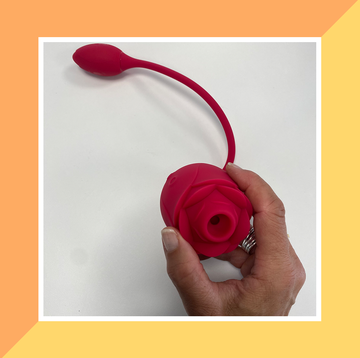Another week, another term trending on social media. This time it’s “micro-cheating” and it’s being used to describe infidelities that don’t count as cheating. Not quite. Not in the conventional sense at least. But still, they feel like betrayal.
Have you found yourself pursuing deep and meaningful conversations with that dishy dog walker in your local park? Are you messaging that old flame who just happened to pop up on Facebook, or liking a colleague's instagram posts a little too often and enthusiastically?
We’ve all done it, or had it done to us. But does it really matter? Is micro-cheating just another example of social media-confected hysteria, or could we really be chipping away at our relationships, one small and seemingly innocuous step at a time?
“Being faithful is so much more than just not physically cheating on your spouse,” says influencer Susanna Roxanne in a recent TikTok video. “Being faithful is not just physically honouring your marriage, it is emotionally honouring the commitment you made to this woman… not seeking validation from other women.”
Roxanne calls out men who “at the store, at the gym, at work” are having “questionable conversations with women” and “flirting with the idea of cheating”. Of course, there’s nothing new here, says psychologist Dr Sandra Wheatley. “Micro-cheating sounds like a new label for an age-old phenomena. This has been going on since humans started having relationships. Only the label changes.”
In fact, micro-cheating – as it’s described on social media – can include myriad transgressions. At the one end, there’s the outright and persistent flirting that Susanne describes, or secretly communicating with a former lover – actions we know aren’t quite right, and yet… At the other, there’s murkier territory. Clamming up and failing to communicate with your current partner, or seeking your emotional support elsewhere – from an ex, for example. “It wouldn’t come into the bracket of what I, or a lot of other people would call cheating,” says Dr Wheatley. Still: “by choosing confidence in another person, you’ve stopped seeking that support from your partner. That can end up eroding your relationship.”
In fact, research suggests that women may be more emotionally affected by online micro-cheating behaviours than men, suggesting we may feel betrayals of an emotional, and not purely physical nature, more keenly.
That said, you’re unlikely to be lily-white yourself. Ever hosted a party, picked that dress that makes you feel that little bit sexier, laughed at a certain guest’s jokes a little more than the punchline merited, touched his arm a little lingeringly, looked at him a smidgen knowingly from under your lashes? Was that micro-cheating, or just good hosting?
That’s the thing about micro-cheating. It’s not only a woolly term, it’s also inherently subjective. What you think counts as a betrayal could be seen as harmless playfulness by someone else, your partner included. In fact, says Dr Wheatley, there’s another side to all of this. While the above behaviour could indeed end up slowly eroding your partner’s trust in you, there’s another possibility.
If both you and the person you’re flirting with are clear that it’s going absolutely nowhere: “then it doesn’t have to have big consequences,” she says. “You may have boosted your ego and theirs, too. There’s very little harm and even a potential upside in that you feel better about yourself, and your relationship improves by extension. To your partner, this boosted confidence could make you seem more alluring, not as dependent or predictable, more unknowable. For them, that means they have to work a little harder for your attention, and that shift away from complacency is usually a good thing.”
So, how can you tell which side of the coin your behaviour falls on? Well, first, ask if you’d be happy for your partner to see all the dirty details. Next, ask yourself if it’s an established part of your personality, suggests Dr Audrey Tang. If you’ve always been a flirt or an oversharer, for example, then it’s likely your partner knows and accepts this about you.
And if not? What then? “The first question you might need to ask yourself is: why am I needing to do this?” says Dr Tang. “If you’re reaching out to others (as a one-off) because your partner isn’t able to give you the support you need, you might want to ask yourself why, then raise it in conversation with your partner. You don’t necessarily need to tell them that you’ve been reaching out elsewhere, but it would be fair to raise it with them and see if you can find a way to both get what you need from the relationship. You might even find out that they’ve been struggling with their own issues but not wanted to burden you – and it could be an opportunity to better understand each other and bond.”
What if it’s your partner who’s strayed into micro-cheating territory? What should you do when you discover something that’s not quite cheating in the convention sense, but still hurts you? “Again, it’s a case of asking the question openly,” says Dr Tang. This is easier, she suggests, if you have already explained where you yourself draw the line, and why. You might say: “Because of my own past experiences, I find it hard to trust, so please can you tell me if anyone flirts with you – however innocent.”
And if your ideas of what constitutes cheating are just very different? It’s better to find out early, says Dr Tang: “before you’ve invested too much emotion, time and energy.”













